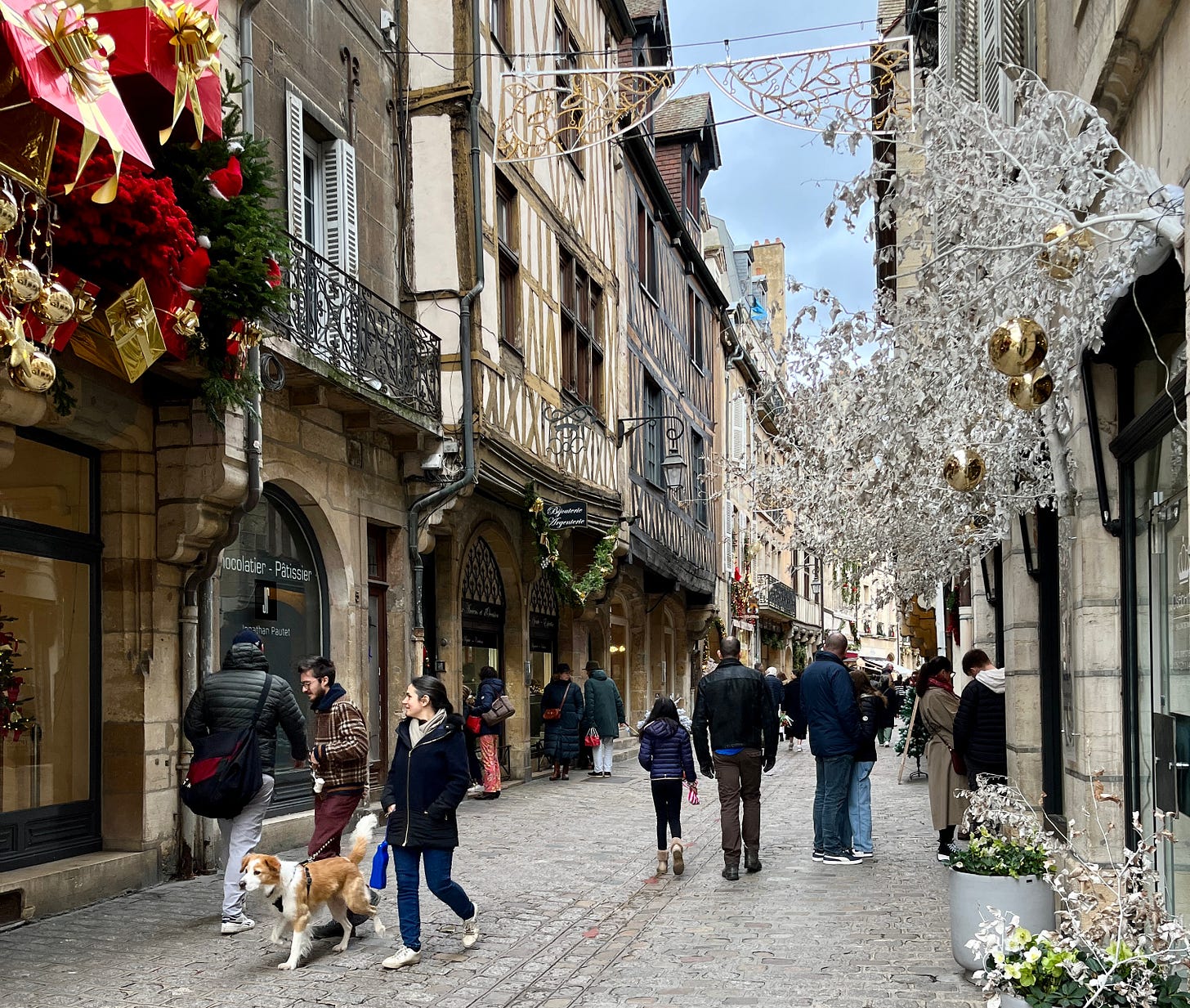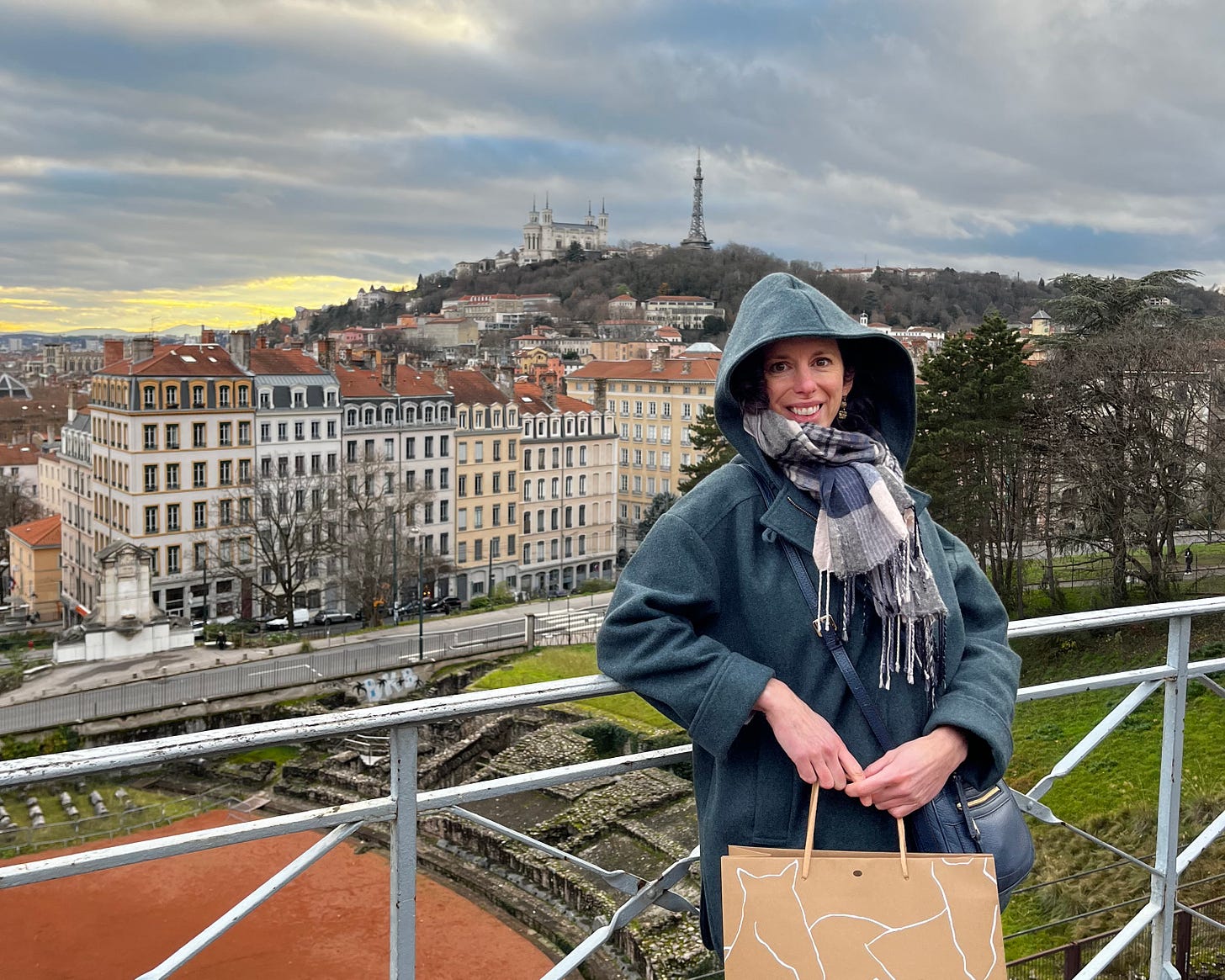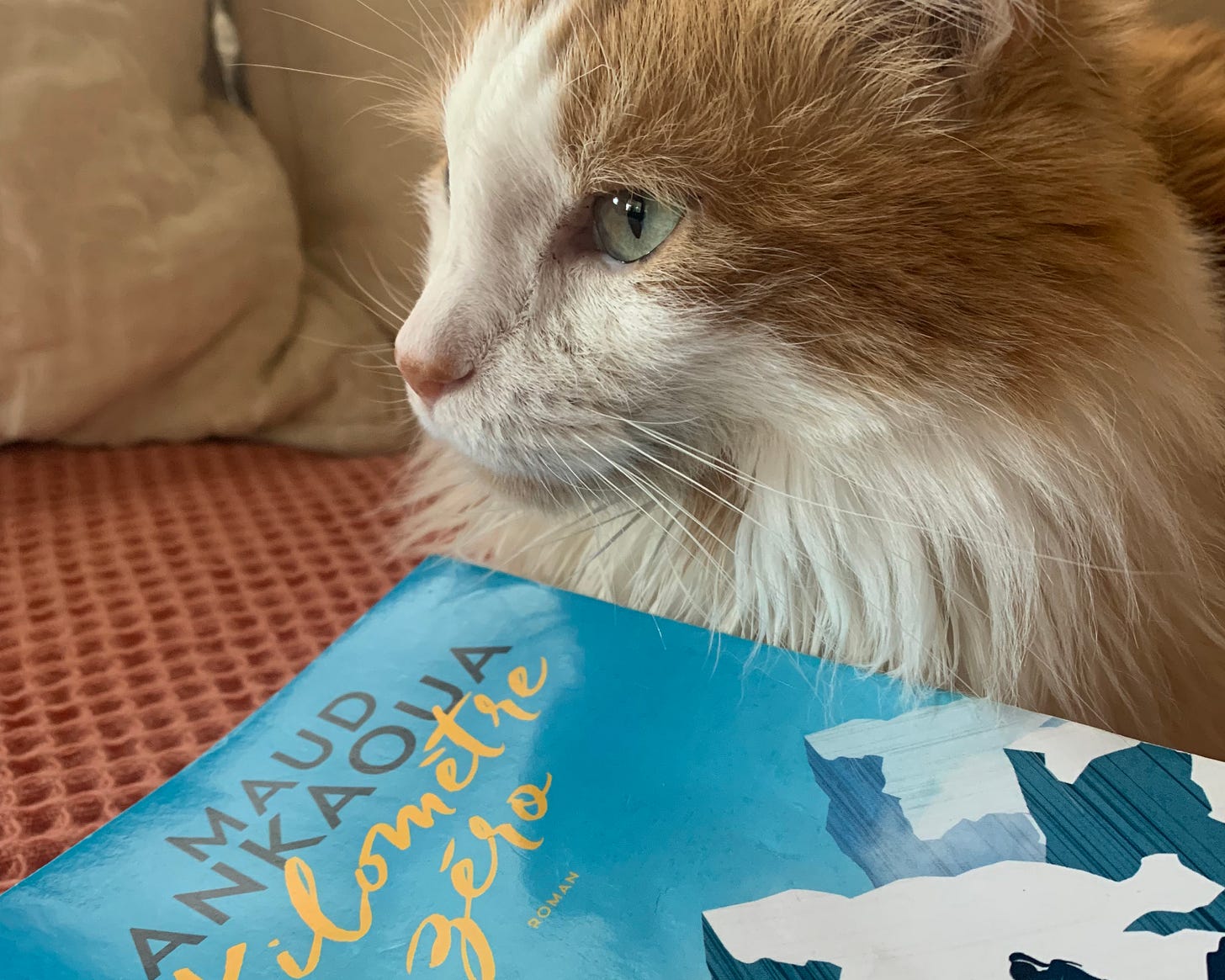
Coucou and bienvenue to the third issue of idiomatic! It’s lovely to see y’all again. For those of you learning another language, I’d love to know your thoughts on this piece. Or really, if you’re the sort of person that finds joy in learning anything new, I’d be curious to hear your feedback in the comments below. Ok, c’est parti!
january, 2022
durango, colorado
Some years ago, before leaving for college, my dad shared with me the secret to success:
Figure out what the teacher wants, then give it to them.
Easy enough. I quickly learned that most teachers required little more than rote memorization of facts, figures, and their own ideas. And so, I generally made straight As, and graduated college feeling quite brilliant.
I thought I knew how to learn.
Cut to present day. One morning in French class, Yann asks me—in that buttery voice of his—why I never stuck with language learning.
"Pourquoi tu n’as pas continué à apprendre le français?"
The question surprises me. I over-analyze every personal failure—in defiance of my therapist’s advice—but have never considered this before. Why, if for so many years of learning French, have I never advanced past the beginner phase?
“Je ne sais pas," I respond after a moment’s hesitation. "C’est comme… frapper un mur."1 I don’t know. It’s like hitting a wall. The conversation moves on, but the question lingers like a bitter residue.
Later that evening, my cat Roxy and I install ourselves on the couch and tee up an episode of Lupin. I’ve already watched the series once with English subtitles, and now I’m going cold turkey to test my comprehension.
The story follows the adventures of a charming con-artist who models his schemes after the fictional Arsène Lupin, a Victorian-era “gentleman thief.” I sink into the show, Roxy purring under one arm. I sip my rosé. I nibble on pieces of halloumi. And at some point, halfway through the first episode, it occurs to me that I’m actually understanding it. Or at least, a good portion of it.
I hit pause.
decembre, 2023
lyon, france

In my efforts to converse with the locals, I’m often stymied by the English language. More often than not, my day-to-day interactions begin with me saying something in French and receiving a response in English. Don’t get me wrong. This is much appreciated at the dentist’s office—chez le dentiste—but I’m frustrated when, at the end of the day, I’ve barely uttered two sentences in French.
One afternoon, I’m out shopping for Christmas presents when I see an outfit that would look great on me. (I’m generous like that.) The shopping season has yet to reach a fever pitch, so there’s room to browse. I drape the outfit over one arm and continue to shift the hangers along the rack, stroking the silk and wool fibers.
“Voulez-vous que je mette vos articles dans la cabine?" The young sales associate appears behind me, asking if I’d like for my clothes to be put in the changing room.
I hand over my growing pile of shirts and dresses, expecting her to leave me in peace. I don’t really intend to buy anything—I’m Christmas shopping, after all. But she’s not done with me yet, and asks if there’s anything in particular that I’m looking for. I begin to offer my automatic “just looking” response, but am struck suddenly by an idea.
“Oui, en fait, j’aime les…. uh… comment dit on… " I lift the sleeve on one of the blouses, indicating that I like the drop shoulder, but don’t know the word for it.
“Ah oui, les manches,” she offers.
“Exactement."
She smiles politely and inquires if I’d prefer to speak in English. No one has ever asked before. I tack it up to one of three things:
They assume I’d prefer to speak in my native tongue.
They want to practice another language.
Most troubling, my French is so bad, that really, we’d all be better off communicating in English.
Well, this kind soul has offered to humor me. I quickly respond, “Je préfère parler en français, s’il vous plaît!”
And so, she leads me through the boutique, displaying a cascade of flowy skirts and blouses. I ask about the fabrics and styles. If this goes with that, and how to tie a scarf. This is fantastic. I’ve found someone who’s actual job is talking to me.
I happily try on a handful of sweaters. When the sales associate not only compliments the fit of a grey pullover—but also my French—I immediately buy it.
I march confidently out of the boutique, hungry to try the experiment again. As the afternoon progresses, a pattern emerges. If a sales associate compliments my French, I buy something. I see, now, the flaw in my methodology. While I have succeeded in conducting numerous conversations in French, I have also drained my checking account by purchasing Christmas presents for myself.2
The following day, I’m crossing the expansive plaza facing the gilded, 17th Century Hôtel de Ville. The fountain of a bare-chested woman driving a four-horse chariot, even on a blustery winter day, still draws a crowd. A group of young people wearing matching vests approach unwitting pedestrians, cornering them into a conversation, from which there is no escape.
I’m reminded of an incident in Denver when a Greenpeace volunteer accused me of killing baby tigers because I refused to donate. Ever since, I’ve avoided these so-called “charity muggers.” Yet, by divine providence, here is another—more sustainable—opportunity to practice my French with someone obligated to speak to me.
I allow a volunteer to approach, reassured by her friendly Red Cross vest. In the coming weeks, I will ignore my natural urge to run for cover—even when the Jehovah’s Witnesses target me. Instead, I venture into unstudied exchanges with random humans about random subjects. There’s no vocab list to memorize or pre-determined verb tenses to use. But slowly, overtime, I can feel my brain rewiring as it maps out uncharted territory, one uncomfortable and awkward conversation at a time.
january, 2022
durango, colorado
I think of David Epstein’s book Range, in which he discusses the role of “desirable difficulty” in deep—or long-term—learning. Essentially, if learning feels easy, then you’re likely not retaining the knowledge. When I look at my college transcripts, I’m shocked by the number of classes in which I earned an A, yet have zero memory of ever attending. (Or is this really a nightmare where I discover I haven’t attended class all semester?)
In the years since college, the classes I still refer to are the ones that were the most difficult. Rather than memorization, they required abstract thinking and formulating my own ideas; like analyzing Shakespeare’s tragedies or debating environmental ethics. In Range, Epstein also argues that learning out of order and out of context also facilitates deep retention.
In my previous attempts to learn French, I followed a textbook, sat in a classroom of equally bored students. We memorized vocabulary, wrote verb conjugations, and recited pre-written dialogues between a confused tourist and a patient French person. If I watched any TV, it was probably produced for language learners in the 1980s.
The goal was always, first and foremost, to pass a test; and secondly, to be fluent. And so, I approached French like any challenge: start with the end-destination in mind and work backwards. Determine the requirements and proceed to complete them.
This manifested as stacks of colorful flashcards and piles of second-hand textbooks. I would scribe the names of household objects onto Post-it notes, and plaster the house with them. I would set study timers and practice my pronunciation. Yet inevitably, after the initial sprint off the starting line, the journey to my destination would sink into a mire of confusing grammatical structures and evermore verb tenses. Like I said, Sisyphean.
This time, my approach is different. I’m looking through a kaleidoscope of possibilities in which I see myself journaling in French, reading articles about wolves in the Alps, and watching shows like Lupin. I’m absorbing the language, not because the content is French, but because it’s something I’m interested in. I continue to practice vocabulary and grammar, but it’s driven by curiosity. I’m relearning how to learn and it’s liberating.
And I realize now, nestled here with a warm cat and a glass of wine, that my goal has shifted from being fluent to becoming fluent.
“Roxy, tu sais ce que ça veut dire?" Do you know what this means? “It’s about the journey and not the destination.”
She sighs, and I can only assume, rolls her eyes.
Merci for reading and not judging me like a certain orange and white cat. If you enjoyed yourself, consider sharing idiomatic with a friend. (Or subscribing, if you haven’t already.)
Final tidbits:
I’m actually quite fascinated with the process of “relearning how to learn.” I’d love to hear about your approach to curiosity, learning, and exploring new things. Feel free to comment below!
If you’d like to see more pictures of my life abroad, you can find me on Instagram.
I recently tried my hand at writing in French. It was slashed to pieces with a red pen and republished with helpful notes for other language learners here.
The Cézanne painting of a road at the top represents a journey. If you hadn’t gotten that already…
Up next on idiomatic:
The correct way of saying “it’s like hitting a wall” is “C’est comme… se heurter à un mur.”
The fashion industry is responsible for roughly 8% of all global carbon emissions. That’s more than aviation and shipping combined. So, I really can’t recommend shopping as a long-term methodology for learning French…









Excellent piece, Margaret! I'm delighted to see you're writing on Substack. Serendipitously, I was working on a piece on learning this week and published it today. So I highlighted your newsletter and quoted you. Keep up the awesome work.
https://talkingbigideas.substack.com/p/the-best-way-to-remember-what-you
I think that in learning any new skill, it is helpful to have a growth mindset – be willing to make mistakes, understand that there will be setbacks, mix a little theory with a lot of practice and keep going!